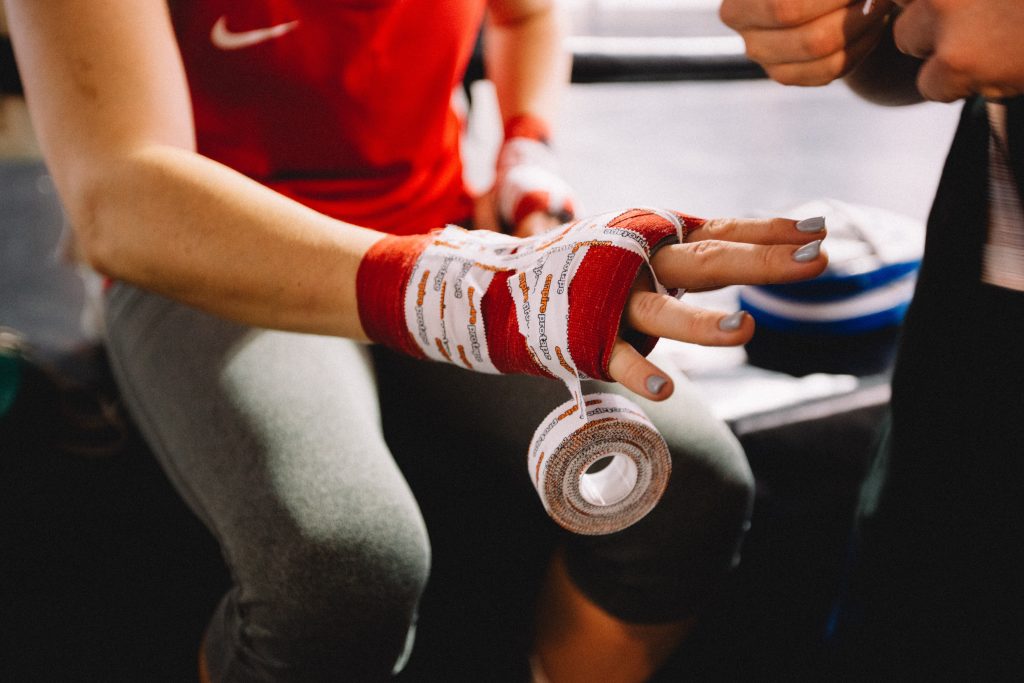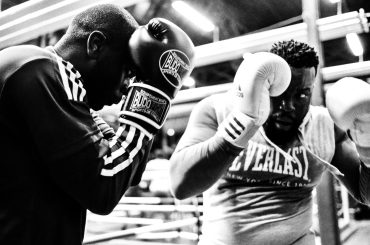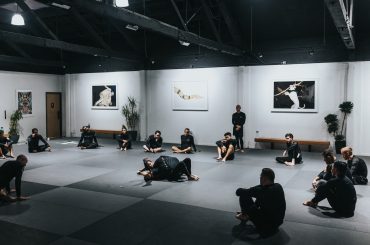Is MMA Good for Self Defense?
In a world where personal safety is paramount, the question of whether Mixed Martial Arts (MMA) is a viable option for self-defense often arises. MMA, a combat sport incorporating techniques from various martial arts disciplines, has gained significant popularity. But does the training and skillset honed in the octagon translate effectively to real-world self-defense scenarios? Let’s delve into the dynamics of MMA and its applicability as a self-defense tool.
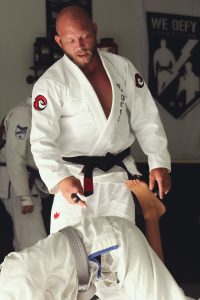
Introduction
The art of self-defense has evolved, encompassing various techniques and philosophies. In recent years, the popularity of MMA as a combat sport has led many to question its practicality as a means of self-defense. While the controlled environment of the octagon might differ from the unpredictability of real-life altercations, there are valuable skills and insights that MMA training can offer.
Understanding MMA
Origins and Evolution
MMA, a relatively modern combat sport, emerged as an arena where fighters from various martial arts backgrounds could test their skills. Originating from ancient traditions, such as Pankration in ancient Greece, MMA as we know it today gained traction in the late 20th century. Its evolution has led to integrating techniques from disciplines like Brazilian Jiu-Jitsu, Muay Thai, wrestling, and boxing.
Core Martial Arts Disciplines
At the heart of MMA are its core martial arts disciplines. Striking techniques, including punches, kicks, and elbows, are borrowed from stand-up arts like boxing and Muay Thai. Grappling and submission hold, synonymous with Brazilian Jiu-Jitsu and wrestling, dominate the ground game. This diverse skill set forms the foundation of MMA training.
Skills Developed in MMA Training
Striking Techniques
MMA training sharpens striking techniques, enabling practitioners to deliver powerful and accurate blows. These skills are valuable for creating openings and gaining control in self-defense. By mastering the art of distance management, fighters can keep potential threats at bay.
Grappling and Submission Holds
Grappling techniques, essential in MMA, focus on controlling opponents and forcing them into submission holds. These skills can aid in neutralizing adversaries without inflicting excessive harm, a crucial consideration in self-defense scenarios where the aim is to hinder rather than cause injury.
Defensive Maneuvers
MMA training places considerable emphasis on defensive tactics, teaching practitioners how to evade and block strikes effectively. These maneuvers and counterattacking strategies empower individuals to protect themselves from incoming threats.
Real-World Self-Defense: Factors to Consider
Assessing Threat Levels
One must gauge the level of threat in a self-defense situation. MMA training equips individuals to respond proportionately to the danger, potentially preventing escalation and unnecessary harm.
Legal Implications
Using MMA techniques in self-defense raises legal considerations. While the goal is to neutralize a threat, individuals must be cautious not to exceed reasonable force, which can lead to legal consequences.
Benefits of MMA for Self-Defense
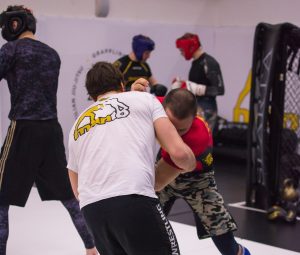
Physical Fitness and Conditioning
MMA training fosters peak physical fitness, enhancing strength, endurance, and flexibility. These attributes are invaluable in self-defense situations, where physical demands can be taxing.
Confidence and Mental Preparedness
Mastering MMA techniques bolsters self-confidence. Additionally, rigorous training hones mental resilience, preparing individuals to think clearly under pressure.
Limitations of MMA in Self-Defense
Multiple Attackers and Weapons
Unlike the controlled environment of the octagon, real-life altercations may involve multiple attackers or even weapons. MMA training might need to address these complex scenarios fully.
Escape and De-escalation
MMA’s focus on engagement might not align to escape or de-escalate a confrontation, which should be prioritized whenever possible.
Adapting MMA Techniques to Self-Defense
Targeting Vulnerabilities
MMA training encourages identifying an opponent’s vulnerabilities. Applying this principle in self-defense can enable individuals to exploit weak points effectively.
Using Environment to Advantage
Incorporating the surroundings into self-defense tactics is crucial. MMA-trained individuals can leverage their environment to gain an upper hand.
Training Mindset: Sport vs. Survival
Rule-Based vs. Unpredictable Scenarios
Unlike the chaos of real-world altercations, MMA bouts follow the rules and regulations. Training must adapt to the unpredictability of survival scenarios.
Case Studies: Real-Life Self-Defense with MMA Skills
Examples of Successful Defenses
Several instances highlight individuals successfully employing MMA skills for self-defense. Analyzing these cases offers valuable insights.
Analyzing Strategies Employed
Studying how MMA techniques were adapted and executed in these cases provides practical knowledge for real-world applications.
Supplementary Self-Defense Training
Complementary Martial Arts
Pairing MMA training with other disciplines, such as Krav Maga or traditional martial arts, can offer a more comprehensive skillset.
Situational Awareness Workshops
Supplementary training in situational awareness and conflict de-escalation can augment the effectiveness of MMA techniques.
The Psychological Aspect of Self-Defense
Managing Fear and Panic
MMA training helps individuals manage fear and panic, enabling them to make rational decisions even in high-stress situations.
Decision-Making under Stress
Quick and accurate decision-making is crucial in self-defense. MMA’s emphasis on split-second choices can translate to real-life scenarios.
Ethical Considerations
Proportionate Use of Force
Ethical self-defense involves using proportional force to neutralize a threat. MMA-trained individuals must understand these principles.
Avoiding Aggression
MMA’s aggressive nature might not align to avoid harm. Ethical choices are paramount.
Personal Transformation through MMA
Discipline and Self-Control
MMA instills discipline and self-control, shaping individuals into responsible practitioners of self-defense.
Respect for Others
Central to martial arts is respect for opponents. This ethos carries over to self-defense situations, promoting non-violent resolutions.
Expert Opinions: Perspectives on MMA for Self-Defense

Martial Arts Instructors
Martial arts instructors weigh the benefits and limitations of using MMA techniques in self-defense scenarios.
Law Enforcement Professionals
Law enforcement professionals provide insights into how MMA skills can complement the strategies employed by those in the field.
Conclusion
While MMA offers a repertoire of techniques that can be adapted for self-defense, its efficacy hinges on judiciously applying those skills. MMA training enhances physical attributes, mental resilience, and situational awareness, making it a valuable tool. However, the unpredictable nature of real-world altercations, ethical considerations, and the need for supplementary training must be considered. Ultimately, the decision to incorporate MMA in one’s self-defense strategy should be based on a holistic understanding of its strengths and limitations.
FAQs (Frequently Asked Questions)
Is MMA suitable for everyone as a self-defense option?
- MMA training can be physically demanding, but its principles can benefit individuals of various fitness levels.
Can I solely rely on MMA techniques to defend against armed attackers?
- While MMA skills are valuable, specialized training in dealing with armed assailants is crucial.
Is it necessary to compete in MMA to use it effectively for self-defense?
- Competition is not mandatory; practical application and adaptability of techniques matter most.
Are there age restrictions for learning MMA for self-defense?
- Many gyms offer age-appropriate MMA classes, making it accessible to a wide range of individuals.
Can learning MMA increase the likelihood of confrontation?
- Properly trained individuals often exhibit improved conflict resolution skills and choose avoidance when possible.

